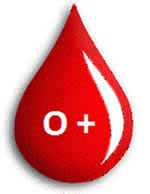Cracking the Code: Understanding the O+ Blood Type
Welcome to our comprehensive guide on blood types, where we delve into the intriguing world of the O+ blood type. In this article, we’ll unravel the mysteries, explore the characteristics, and highlight the importance of this specific blood type.
Understanding Blood Types

o+ blood type
Blood Typing Demystified: ABO and RhD Systems
Before we dive into the specifics of O+ blood type, let’s lay the foundation by understanding the fundamentals of blood types. We’ll introduce you to the ABO and RhD blood group systems, setting the stage for a deeper exploration.
What is the O+ Blood Type?
Deciphering O Positive: Traits and Prevalence
Now, let’s turn our attention to O+ blood type. What makes it unique, and how common is it among the population? Join us as we uncover the defining characteristics of O+ blood and its significance in healthcare.
O+ Blood Type Compatibility
Compatibility Matters: Who Can Receive O+ Blood?
Understanding blood compatibility is vital in medical emergencies and transfusions. In this section, we’ll discuss which blood types are compatible with O+ and why this knowledge can be a matter of life and death.
Health Implications of O+ Blood Type
Beyond Compatibility: Health Insights for O+ Individuals
Are there specific health implications associated with O+ blood type? We’ll delve into any potential correlations, shedding light on how your blood type may play a role in your overall health and well-being.
O+ Blood Type Donations
Be a Lifesaver: The Importance of Donating O+ Blood
In this section, we emphasize the critical role that O+ blood donors play in saving lives. We’ll provide valuable information on where and how you can contribute to this life-saving cause through blood donations.
Famous Individuals with O+ Blood Type
Notable Figures: O+ Blood Types in the Spotlight
Did you know that some famous individuals share the O+ blood type? We’ll showcase well-known figures who have this blood type, highlighting that it’s not just a medical factor but an interesting point of trivia.
Frequently Asked Questions (FAQs) About O+ Blood Type
1. What is the O+ blood type?
Answer: The O+ blood type is a specific blood group that possesses the O antigen and is Rh-positive. It is one of the most common blood types globally.
2. How common is the O+ blood type?
Answer: O+ is the most prevalent blood type, with around 38% of the U.S. population having this blood type.
3. Can O+ individuals receive blood from any blood type?
Answer: O+ individuals can generally receive blood from O+ and O- donors, but they should avoid Rh-negative blood types (A-, B-, AB-, and O-).
4. Can O+ individuals donate blood to anyone?
Answer: O+ individuals are considered universal donors for Rh-positive blood, meaning they can donate to individuals with A+, B+, AB+, and O+ blood types.
5. Are there any dietary recommendations specific to O+ blood type?
Answer: Some diets suggest that blood type can influence nutritional needs, but scientific evidence supporting these claims is limited.
6. Can O+ blood type affect pregnancy?
Answer: O+ blood type itself typically does not cause pregnancy complications. However, Rh incompatibility between an O- O-mother and an O+ baby may require medical attention.
7. How is O+ blood type determined?
Answer: Blood type is determined through a blood test, which identifies the presence or absence of specific antigens on the surface of red blood cells.
8. Are there any health advantages or disadvantages to having an O+ blood type?
Answer: While there may be some health implications, O+ is generally considered a versatile and compatible blood type, which can be advantageous in medical emergencies.
9. Can O+ individuals receive organ transplants from other blood types?
Answer: Organ compatibility depends on multiple factors, including blood type. O+ individuals may have more potential donor options, but specific matching criteria are essential for successful organ transplantation.
10. How can I find out my blood type?
Answer: Your blood type can be determined through a blood test performed by a medical professional. It’s often included in routine blood work or during blood donation.
Conclusion
In conclusion, the O+ blood type holds its unique significance in the world of blood types and compatibility. By understanding its traits, compatibility, health implications, and the importance of donations, you not only empower yourself but also contribute to the well-being of others.




